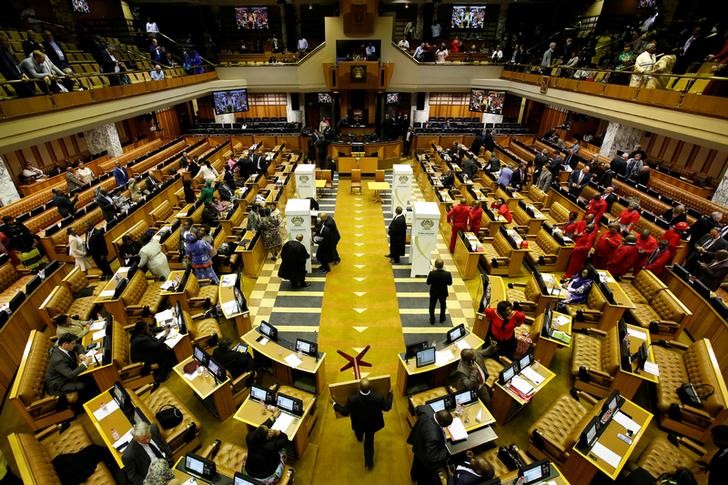JOHANNESBURG (Reuters) - South Africa's political parties should be required to disclose the source of their funding, a court ruled on Wednesday, potentially exposing the patronage networks that have influenced power in the two decades since apartheid.
The ruling by the Western Cape High Court, which orders parliament to amend access-to-information laws, comes against opposition from some parties who fear disclosure could jeopardize funding.
Judge Yasmin Meer said in court papers that disclosure of the private funding of political parties and independent candidates was required for the effective exercise of the right to vote in elections and to make political choices.
She instructed parliament to amend the Promotion of Access to Information Act (PAIA) accordingly.
The application challenging the constitutionality of PAIA, which exempted party funding, was brought by non-profit organization My Vote Counts (MVC), which welcomed the judgment.
"This means that there must be a legislative mechanism that allows access to this information," MVC said in a statement.
However there are concerns this could impact on funding and potentially expose parties to embarrassment, an analyst said.
"There's a potential of significant embarrassment. I think you going to find some people who appear to be strongly aligned to one party are actually giving money to another," said political analyst at NKC Research Gary van Staden.
Main opposition party the Democratic Alliance, which was among the responding political parties, said some of its donors would not like to be made public for fear of discrimination.

The ruling African National Congress party, which was also among the respondents, was not immediately available for comment.